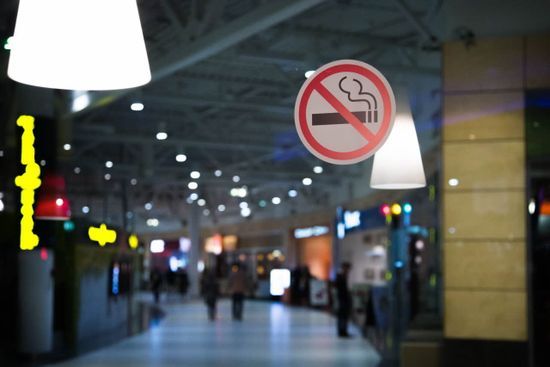
WHO has launched an online course on tobacco product regulation in response to the need for clear, practical advice on building laboratory testing capacity. This course is based on the Tobacco Product Regulation: Building Laboratory Testing Capacity handbook, launched during the 2018 World Conference on Tobacco or Health in Cape Town.
The online course is a useful resource for countries, and provides regulators and policymakers with comprehensible information on how to test tobacco products, what products to test, and how to use testing data in a meaningful way to support regulation. Further, it provides a step-by-step guide to developing a testing laboratory, using an existing internal laboratory, contracting an external laboratory, and making use of the available support mechanisms both within WHO and externally.
Tobacco use is a global health burden. However, despite the devastating effects of tobacco use, only a handful of countries currently regulate tobacco products, including on how the product is made, the contents of the product and emissions from tobacco products during use, to which users and bystanders can be exposed.This is partly due to the challenges associated with the regulation of tobacco products, the highly technical nature of this policy intervention and the difficulties in translating science into regulation. Failure to regulate represents a missed opportunity as tobacco product regulation, in the context of comprehensive control, is a valuable tool that could complement other tried and tested tobacco control interventions, such as raising taxes, smoke-free environments, etc.
Language: English
English
Tobacco
Course information
This course is also available in the following languages:
Overview: Welcome to the online course on building laboratory testing capacity for tobacco product regulation. In recent years, health authorities have become increasingly interested in the potential of tobacco product regulation to reduce the morbidity and mortality associated with tobacco use. This course provides practical, stepwise approaches to implementing tobacco testing to improve tobacco product regulation. Such guidance is relevant to a wide range of countries in various settings, even those with inadequate resources to establish a testing facility.
In this six-section course, you will review testing in the context of a country's regulatory authority, three possible routes to a testing laboratory, contracting with an external laboratory, using an existing internal testing laboratory, developing a tobacco-exclusive testing laboratory, and WHO TobLabNet Membership (criteria, advantages and procedures).
Learning objectives: By the end of this course, participants should be able to describe basic testing needs in tobacco product regulation, the relevance of testing, the basic principles and how they can be applied to their country context.
Course duration: Approximately 2 hours.
Certificates: A certificate of achievement is issued to those who have completed the course material and earned more than 80% of the maximum number of points from all graded assignments. Participants who receive a Record of Achievement can also download an Open Badge for this course. Click here to learn how.
After completing this course, should you be interested in learning about the basics of tobacco product regulation, please refer to the OpenWHO course Tobacco product regulation: Basic handbook: https://openwho.org/courses/TPRS-tobacco-product-regulation-handbook
Course contents
Section 1: Testing in the context of the country's regulatory authority:
By the end of this section, participants should be able to: articulate principles for identifying tobacco products to test, testing analyses, communicating data to regulators and covering costs.Section 2: Three possible routes to a testing laboratory:
By the end of this section, participants should be able to: describe the basic concepts for contracting with an external laboratory, using an exiting internal laboratory and developing an internal laboratory.Section 3: Contracting with an external laboratory:
By the end of this section, participants should be able to: describe essential criteria for contracting with an external testing laboratory.Section 4: Using an existing internal testing laboratory:
By the end of this section, participants should be able to: define essential criteria for using an existing internal testing laboratory.Section 5: Developing a tobacco-exclusive testing laboratory:
By the end of this section, participants should be able to: articulate necessary measures for developing a tobacco-exclusive testing laboratory.Section 6: Resources: WHO TobLabNet Membership:
By the end of this module, participants should be able to: understand criteria, advantages and procedures for WHO TobLabNet membership.Course credits:
List of technical contributions to course development.
Enroll me for this course
Certificate Requirements
- Gain a Record of Achievement by earning at least 80% of the maximum number of points from all graded assignments.
- Gain an Open Badge by completing the course.